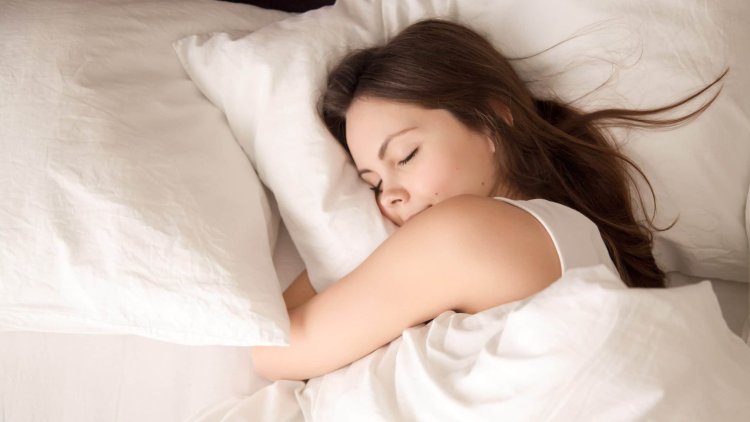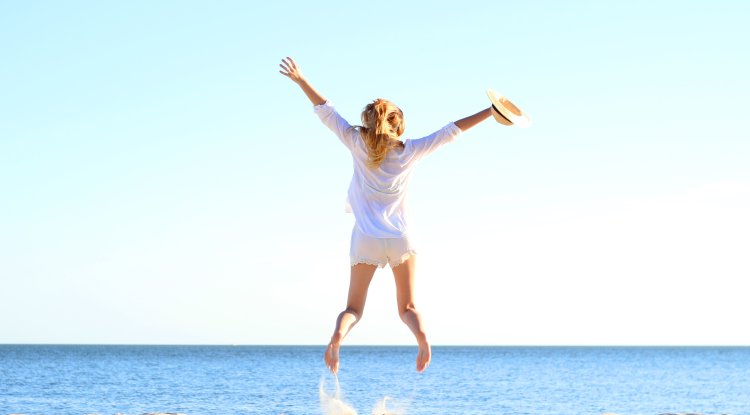Find out how much sleep your body really needs
Is it true that there is never too much sleep?

Is it true that there is never too much sleep? What effect does the clock have in your bedroom? Is sleeping without pajamas hygienic? We asked sleep experts for some answers to important questions before bed in order to find answers. Just as people are different, so are their sleeping habits. Some sleep long, while others thrive with relatively few hours of sleep. Not surprisingly, there are many popular sleep beliefs that are incorrect. We checked a few common claims about sleep and confirmed their truthfulness.
Claim: You should not look at your watch if you have trouble sleeping.
Exactly. Checking your watch and calculating how many hours are left before you have to get up is stressful, which is why the German Society for Sleep Research and Medicine (DGSM) says you shouldn’t have a watch nearby if you don’t sleep well often. The pressure that you have to sleep creates tension, which can make it even harder to fall asleep. Instead of lying awake and upset, it is advisable to get out of bed briefly and devote yourself in your thoughts to something else.
Claim: Sleeping without pajamas is unhygienic.
Not necessarily. If everything you have under the covers is your body, you need to practice strict bed hygiene. People lose one to two liters of fluid during sleep. So, if you neglect proper hygiene, all sorts of little creatures like mites can settle in your bed. It is advised that naked sleepers change the bed linen at least once a week. And what is the ideal clothing if you do not sleep naked? The main thing is that you are not "cold or sweaty" in such clothes because they are both stressors and interfere with sleep.
Claim: You should sleep a lot after vaccination.
Exactly. Lack of sleep after vaccination results in a lower antibody response. Researchers at the University of Pittsburgh in the United States found that people who slept less at the time of hepatitis B vaccination built a weaker immune defense than those who slept enough. “You should definitely try to get enough sleep before and after vaccination,” doctors say.
Claim: Too much sleep can lead to episodes of sleep paralysis.
Incorrectly. Sleep paralysis is a feeling of being awake, but you can’t move or talk while waking or falling asleep, and it can last up to a few minutes. Touching a person in that state is usually enough to end it. Sleep paralysis is partly a continuation of the REM (rapid eye movement) phase of sleep during the conscious state. REM sleep, the sleep phase when you tend to have vivid dreams, also involves loss of muscle control. This helps prevent you from following your dreams with movements and possibly hurting yourself or others.
How long?
Claim: Too little sleep is unhealthy, but too much is not.
Incorrectly. You should not come close to imitating koalas, long-sleepers who can nap between 18 and 22 hours a day. Just as regular sleep deprivation is not good for you, so is the opposite, according to the European Society for Sleep Research. Sleep longer than nine hours is too long for adults. A study by the Onassis Cardiac Surgery Center in Athens found that too much sleep can increase the risk of cardiovascular diseases such as heart attack or stroke. But some illnesses, such as depression and sleep apnea, can cause a person to sleep longer than normal.
Claim: Six to eight hours of sleep is enough for everyone.
Not quite right. Sleep needs vary from person to person. About 80 percent of us need between six and eight hours of sleep a night. Many people do not know how much sleep they need but get up when the alarm clock rings. To find out how much sleep your body really needs, it is recommended that you do not turn on the alarm clock when you are on vacation. If you don’t feel sleepy during the day while doing concentrated work, you’ve got enough sleep.




























